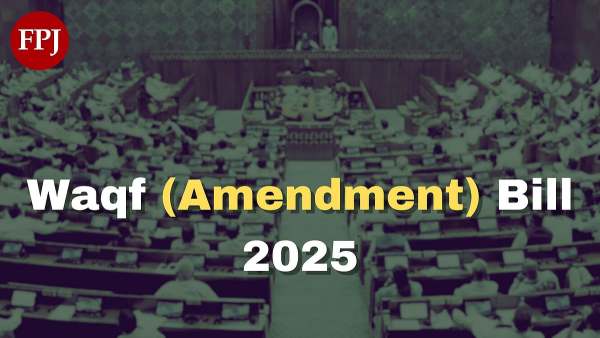
AIMPLB moves SC against newly-enacted Waqf law New Delhi, Apr 7 (PTI) The All India Muslim Personal Law Board has moved the Supreme Court against the constitutional validity of the Waqf (Amendment) Act, 2025.
Earlier in the day, a bench comprising Chief Justice Sanjiv Khanna and Justices Sanjay Kumar and K V Viswanathan agreed to consider, listing for an urgent hearing, the plea of Jamiat Ulama-i-Hind, AIMIM leader Asaduddin Owaisi and others, including Congress MP Mohammad Jawed and AAP MLA Amanatullah Khan on the issue.
President Droupadi Murmu on April 5 gave her assent to the Waqf (Amendment) Bill, 2025, which was passed by Parliament after heated debates in both houses.
The All India Muslim Personal Law Board (AIMPLB) filed the plea in the top court late April 6.
In a press statement, SQR Ilyas, the AIMPLB spokesperson, said the petition strongly objected to the amendments passed by Parliament for being "arbitrary, discriminatory and based on exclusion".
The amendments, it said, not only violated the fundamental rights guaranteed under Articles 25 and 26 of the Constitution of India but also clearly revealed the government's intention to take complete control over the administration of Waqf, therefore, sidelining the Muslim minority from managing their own religious endowments.
Articles 25 and 26 of the Constitution ensure freedom of conscience, the right to practice, propagate religion, and the right to establish and manage institutions for religious and charitable purposes, it said.
The newly-enacted law deprives Muslims of these fundamental rights, it added.
"The amendments regarding the selection of members of the Central Waqf Council and Waqf Boards stand as stark proof of this deprivation. Additionally, the five-year requirement for a waqif (donor) to be a practising Muslim contradicts both the Indian legal framework and Article 14 and 25 of the Constitution, as well as Islamic Shariah principles," the statement said.
Describing the law as discriminatory and inconsistent with Article 14 of the Constitution, the press release said the rights and protections afforded to the endowments of other religious communities-Hindus, Sikhs, Christians, Jains and Buddhists-were denied to Muslim Waqf, Awqaf.
The board said the top court being "the guardian of constitutional rights" should annul these "controversial amendments, uphold the sanctity of the Constitution" and the Muslim minority rights from "being trampled upon".
The plea is settled by advocate M R Shamshad, with advocate-on-record Talha Abdul Rahman representing the Muslim personal law board, through its General Secretary Maulana Fazlur Raheem Mujaddidi.
(Except for the headline, this article has not been edited by FPJ's editorial team and is auto-generated from an agency feed.)